(a) A sample of 1.0 mol of a monoatomic ideal gas is taken through a cyclic process of expansion and compression as shown in figure. What will be the value of ΔH for the cycle as a whole?
(b) Which quantity out of ΔrG and ΔrGΘ will be zero at equilibrium?
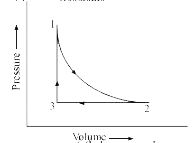
The net enthalpy change, ΔH for a cyclic process is zero as enthalpy change is a state function, i.e., ΔH (cycle) =0
Topper's Solved these Questions
Similar Questions
(a) A sample of 1.0 mol of a monoatomic ideal gas is taken through a cyclic process of expansion and compression as shown in figure. What will be the value of ΔH for the cycle as a whole?
(b) Which quantity out of ΔrG and ΔrGΘ will be zero at equilibrium?

View SolutionWhich quantity out of ΔrG or ΔrG∘ will be zero at equilibrium?
View Solution
Knowledge Check
1 mol of an ideal gas undergoes different thermodynamical process in P−V diragram given below :
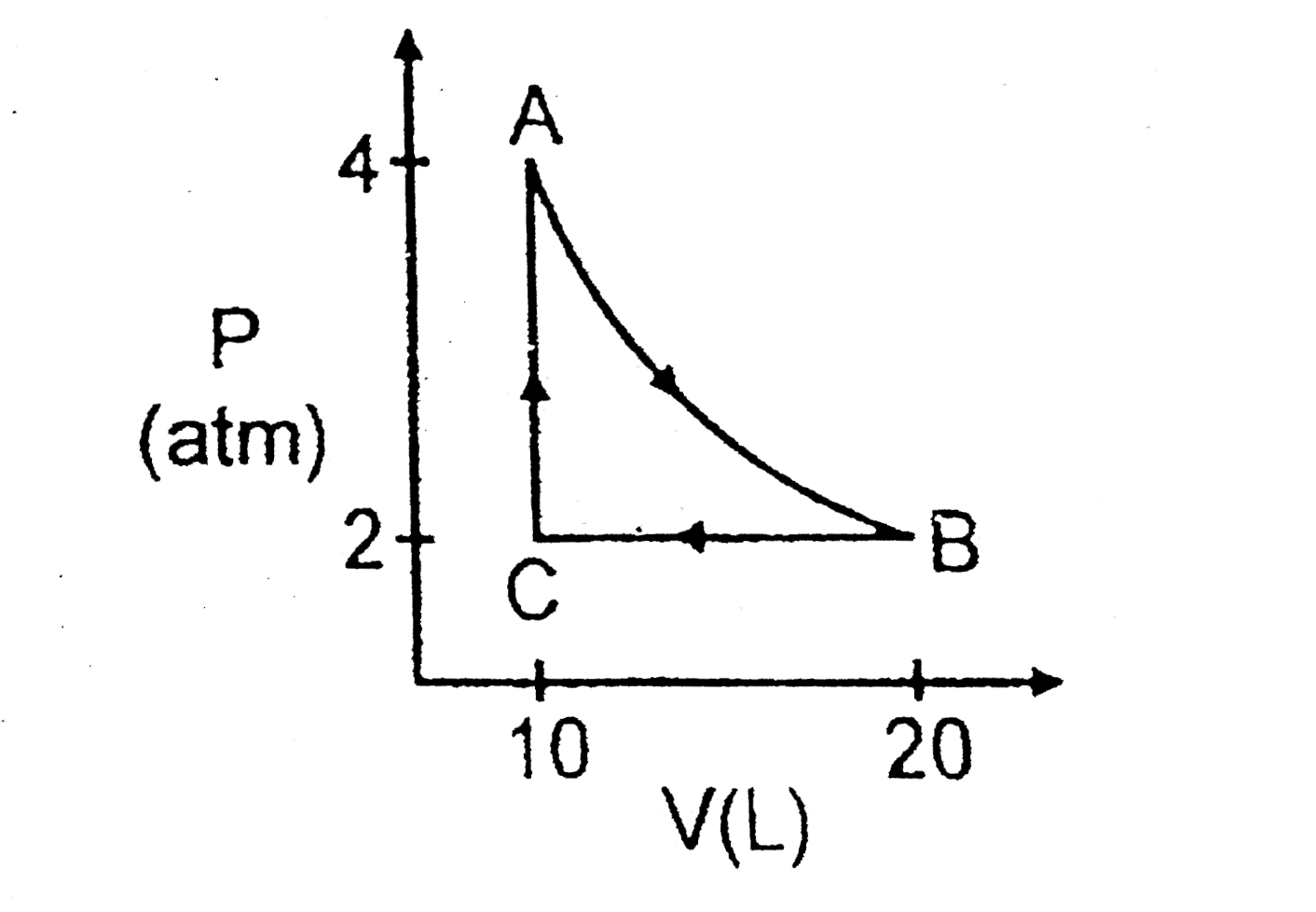
What will be the value of ΔH and ΔE for overall process ?AΔH=0BΔE=0CΔH=48.4 calorieDΔE=13.82 calorieA sample consisting of 1mol of a mono-atomic perfect gas (CV=32R) is taken through the cycle as shown.
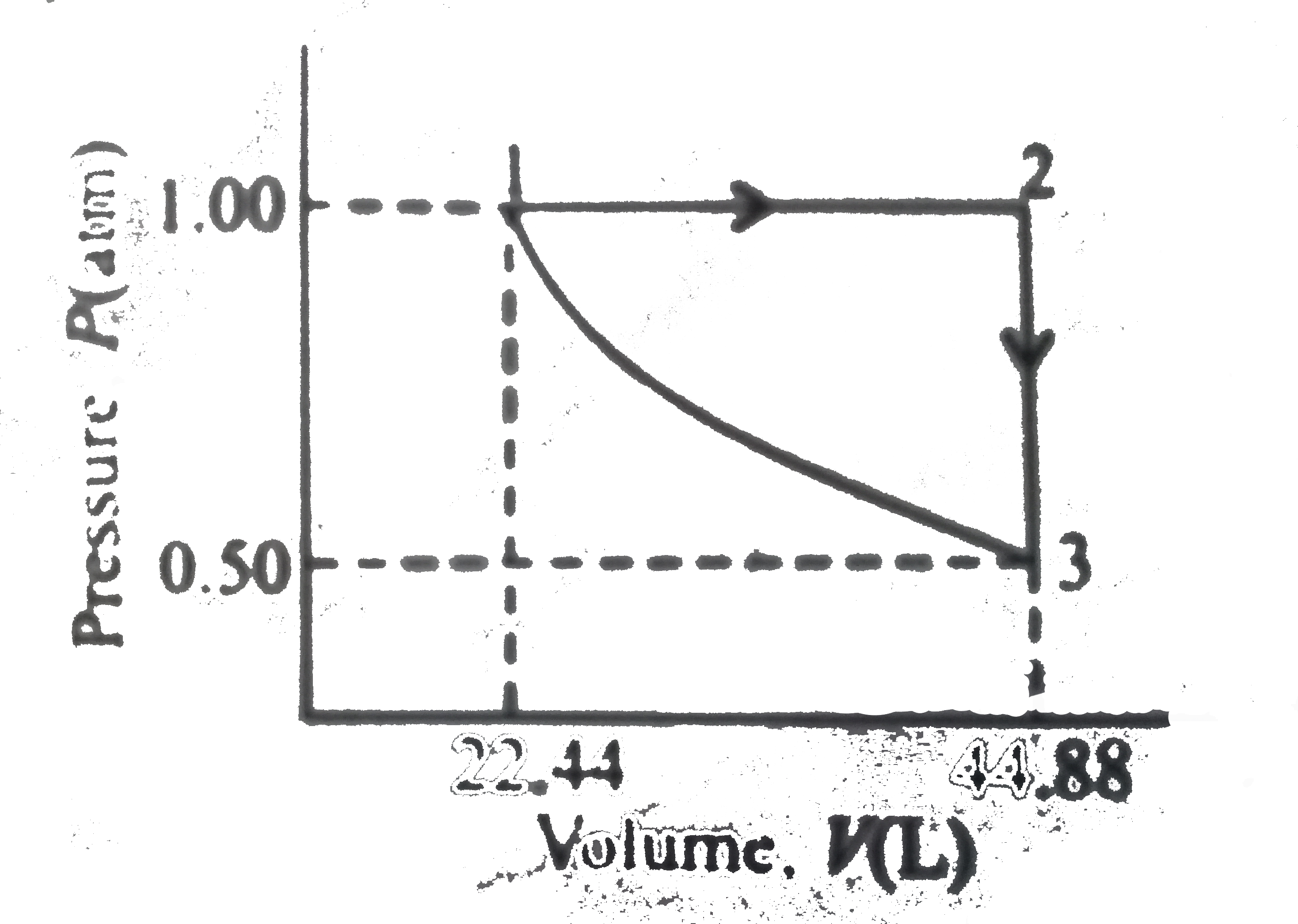
ΔH for the overall cycle isA+5.67×103JB−5.67×103JC−11.34×103JDZeroAn ideal mono atomic gas is taken through the cyclic process shown in fig. Linear expansion from A to B following by adiabatic compression back to original state
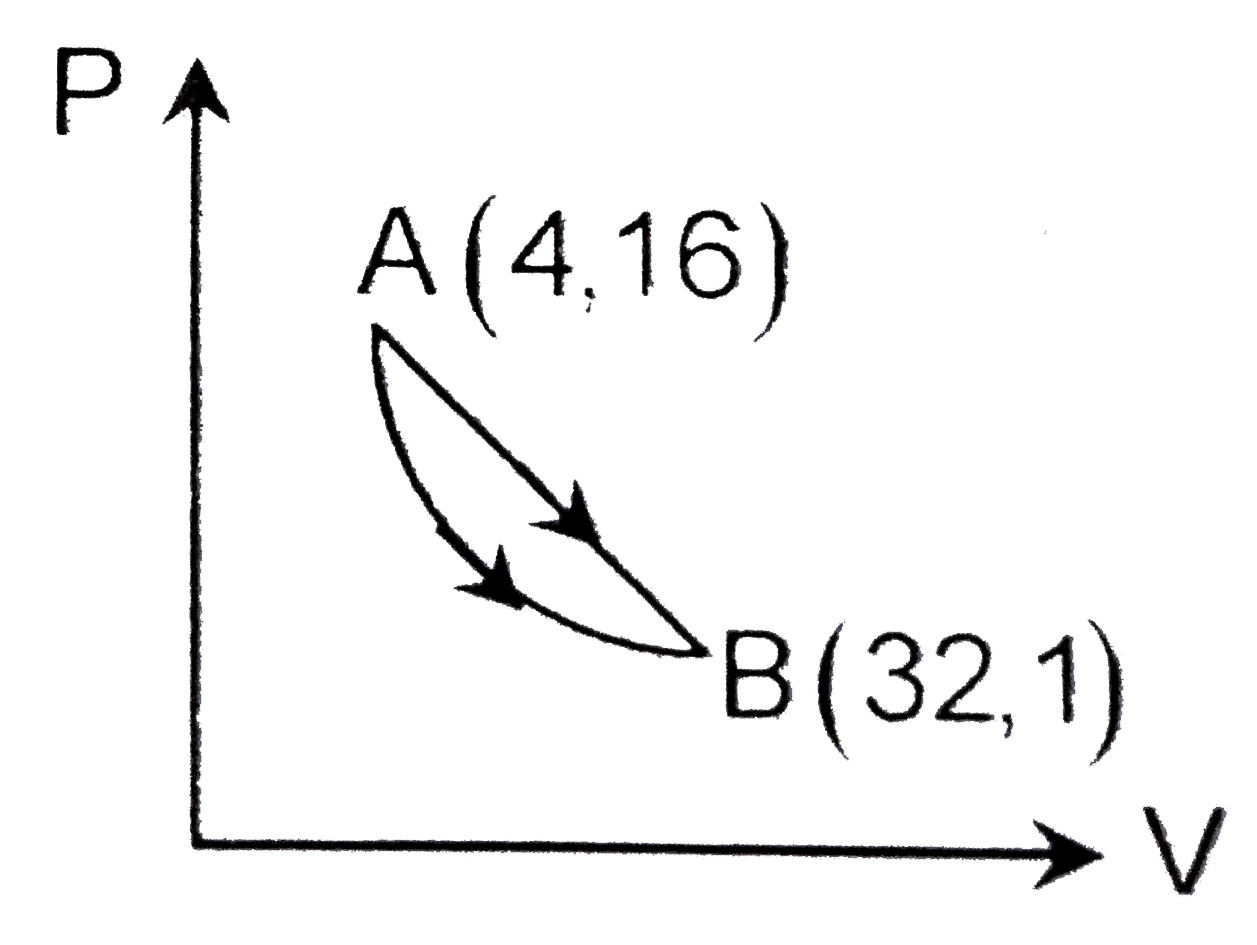 AEfficiency of cyclic process is zeroBDuring process A to B heat is released onlyCDuring process A to B heat is absorbed onlyDDuring linear process heat enters and leaves the process
AEfficiency of cyclic process is zeroBDuring process A to B heat is released onlyCDuring process A to B heat is absorbed onlyDDuring linear process heat enters and leaves the process
Which quantity out of ΔrG or ΔrG∘ will be zero at equilibrium?
View SolutionWhich quantity out of ΔrG or ΔrG∘ will be zero at equilibrium?
View SolutionWhich quantity out of ΔrG or ΔrG∘ will be zero at equilibrium?
View Solution1.0 mol of a monoatomic ideal gas is expanded from state (1) to state (2) as shown in figure. Calculate the work done for the expansion of gas from state (1) to state (2) as 298 K.
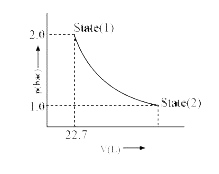
View Solution1.0 mol of a monoatomic ideal gas is expanded from state (1) to state (2) as shown in figure. Calculate the work done for the expansion of gas from state (1) to state (2) as 298 K.

View Solution
